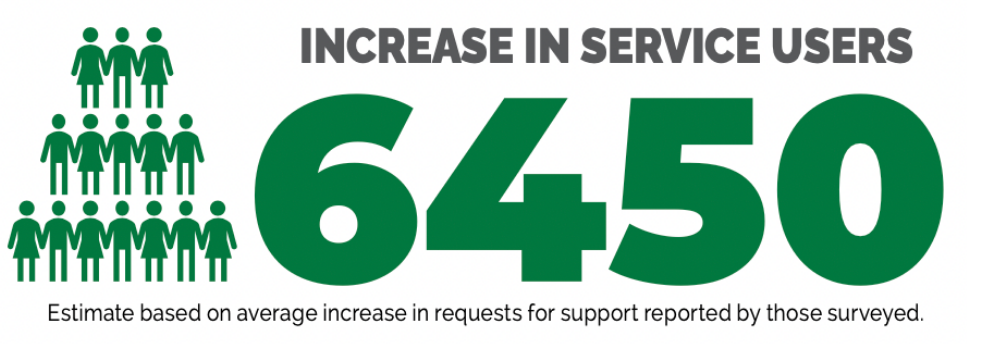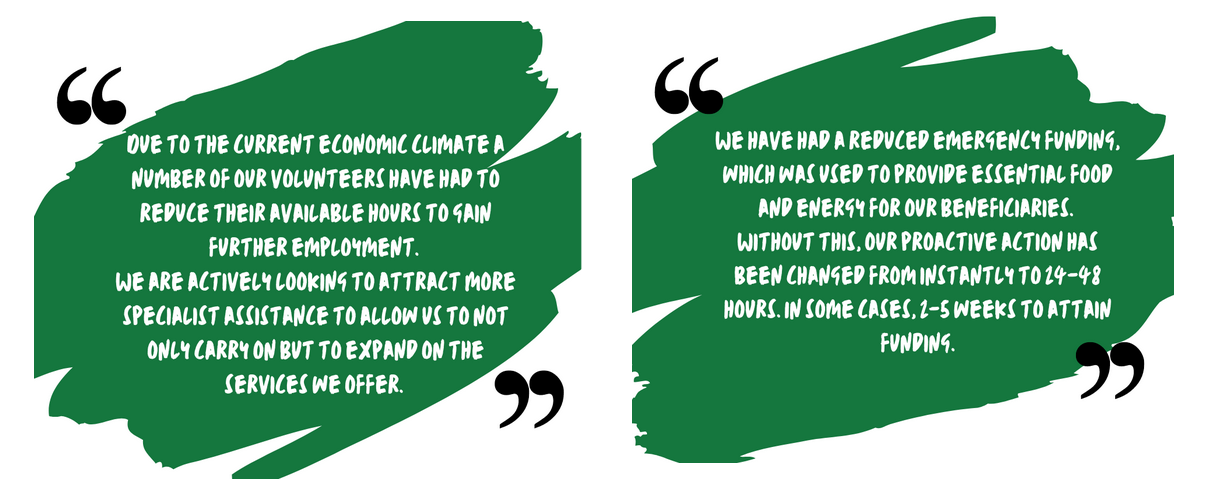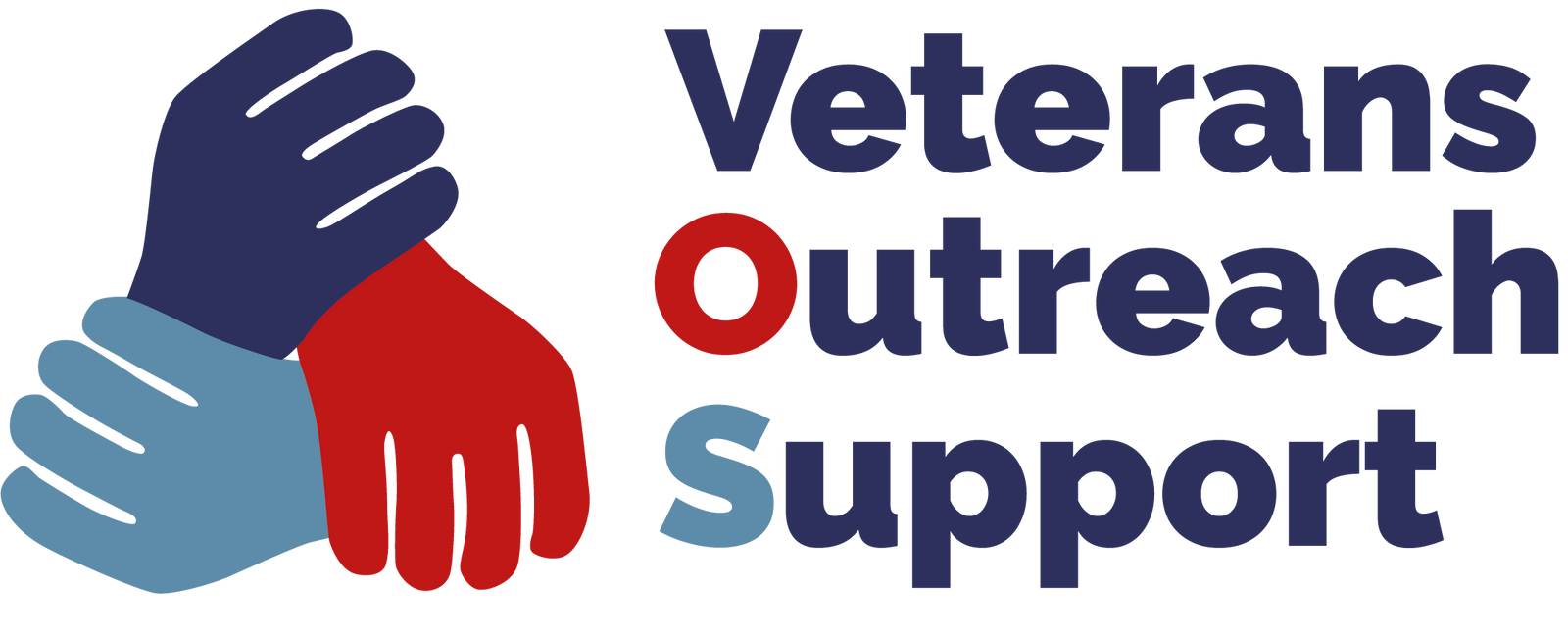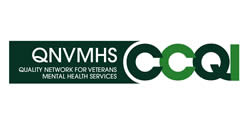The ASDIC Cost of Living Survey results are in, and they can tell us a lot about what drop-in centres are facing today. The survey covered three key areas of concern: Funding, Costs and Service Users.
At Veterans Outreach Support, we host monthly drop-ins for veterans and their partners local to areas around Portsmouth/Isle of Wight. These drop-ins are a one-stop-shop for all sorts of support. Our volunteers and staff are on hand to chat and signpost veterans to whatever resources they may need, from triage with our clinical team including a substance misuse officer to connections with approximately 40 partner organisations.
If you’d like to learn more about our drop-ins, click here. For the new findings from the ASDIC Cost of Living Survey, continue reading below.
What is ASDIC?
The Association of Service Drop-In Centres (ASDIC) represents and links veterans’ drop-ins across the country, like the ones we host at VOS. Sometimes called hubs or centres, these drop-ins are designed to give welfare and mental health support to the ex-military community and their families, plus camaraderie and a sense of belonging. ASDIC helps drop-ins to enhance the services they can provide and makes them more accessible.
From an initial idea in 2016, ASDIC developed into an independent entity by August 2020 when it registered with the Charity Commission as a charity in its own right. It now represents 140 members across 200 locations throughout the United Kingdom with an estimated attendance of over 80,000 veterans annually. We at VOS have been connected to them from the start and are delighted with what they do.

A Shift Toward Community-Based Support
ASDIC reports that over the last 10 years, the way veterans seek help and support has gradually changed. They have seen more and more veterans going to small, locally based organisations embedded in the communities in which they live to get support, with these local community organisations showing rapid membership growth over the last 12 months especially.
In its report, ASDIC stated that this growth reflects a whole societal shift to community based support, which accelerated during the pandemic. For those that needed help, local options were often the most effective ways for them to access real support. The majority of service users access support in person, and increasingly centres have evolved to provide remote support too. One example of this at VOS is our weekly Zoom social (‘Online Brew & Banter’) which started during lockdown but stuck around because it remains popular and easily accessible for our veterans, allowing them to have a good chat from the comfort of their own homes.
Although most ASDIC organisations like VOS are embedded in the local or regional veteran welfare support landscape, they also refer service users to a variety of delivery partners from national support organisations. As a first point of contact, local drop-ins are a fantastically effective way to get veterans and their partners the support they need, local or otherwise. When that first point of contact is strong, the entire veteran community benefits.
How Does the Cost of Living Crisis Affect Drop-In Centres?
To better understand how the challenges of the current cost of living crisis is impacting ASDIC’s network, the charity conducted a survey between November and December 2022, focusing on the previous 6 months. They received responses from over a third of the memberships with submissions from every region of the UK. The survey contained multiple choice and matrix questions, as well as opportunities for participants to provide answers in their own words. Key results:



Funding – Up to 40% of ASDIC members have reported a reduction in fundraising income over the last six months, as well as reductions in income from grants and local authorities. Some are trying to find new avenues of funding, and many call for more sustainable grants as currently most funding is for short term projects, so planning for the future and day-to-day delivery costs is difficult.
Costs – 86% of ASDIC members have reported significant increase in operational costs, in some cases this impacted on ability to provide support. As no one is untouched by the current cost-of- living crisis, not only are centres seeing higher running costs and increased demand, but some centres are also seeing a drop in volunteers, as fewer are able to freely offer their time. There’s a desire to employ paid members of staff, but not the funding to make this possible.
Service Users – 89% have seen an increase in demand for services ranging from mental health to financial matters. The survey has identified a stirring anxiety within the ASDIC membership. When asked how organisations are coping with the demand, over half answered: “With difficulty – we meet most users’ needs, but encounter some challenges.”
However, they are not without optimism! ASDIC reports that its members are showing the same resilience that brought them through the pandemic. The majority of organisations within ASDIC say their ability to meet users’ needs has improved in the past six months.
ASDIC is sharing these findings with the Office for Veterans Affairs to ensure that a spotlight is thrown onto this essential part of the veteran welfare sector, and they will continue to monitor the situation over the coming months.

For more on ASDIC, check out the website here. For help navigating the cost of living crisis yourself, take a look at our resource round-up or reach out to us at VOS.
If you’re a veteran from the UK Armed Forces or the Merchant Navy (from any time of service) or a partner to one, VOS would love for you to join our community. We are here to offer our support: call us on 02392 731 767, visit an upcoming drop-in, or email admin@vosuk.org.
VOS is immensely grateful to the Armed Forces Covenant Fund Trust and the Royal Navy & Royal Marines Charity, as without their support and funding we would not be able to provide our wellbeing activities.








